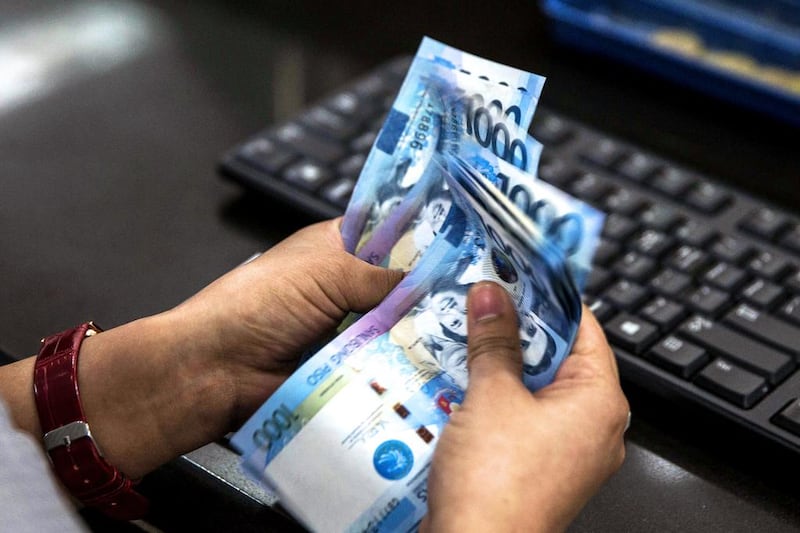Rodrigo Duterte is reinvigorating financial markets in the Philippines with his transformation into a business-friendly leader.
The peso is alone among Asian peers in gaining against the US dollar this month and is also the best performer in emerging markets worldwide. That is a contrast to last month, when it dropped against all of its regional counterparts as Mr Duterte made a range of inflammatory comments before the presidential vote. Having won the May 9 election, he now says he is open to greater foreign ownership of businesses and will seek to eliminate corruption in the tax system.
“President-elect Duterte has conducted himself more as a statesman rather than a campaign brawler,” said Joey Cuyegkeng, an economist at ING Groep in Manila. “He’s now toning down and facing reality on what has to be done. Market-friendly actions would help sustain the peso’s strength.”
It is an extra boost for a currency that already benefits from the Philippines’ current-account surplus, inflows from remittances and revenue from the outsourcing of business processes. The peso’s decline before the vote was “excessive” given those advantages, wrote Khoon Goh, a senior foreign exchange strategist at Australia & New Zealand Banking Group in Singapore. And equities are also gaining – the country’s benchmark stock index is the world’s third-best performer this month.
A more stable Philippines is adding to the allure of emerging markets around the world. Investors are also gaining confidence that China’s economy will avoid a severe slowdown and expectations have built that the Federal Reserve will delay raising interest rates. The political crisis in Brazil may be moving closer to a resolution with the senate voting to suspend the president, Dilma Rousseff.
The peso has surged 0.7 per cent this month to 46.55 per dollar as of Friday, while all of its 11 Asian counterparts have weakened. The Philippine currency dropped 1.7 per cent last month before jumping 1.1 per cent in the two days after the election – the biggest back-to-back advance since May 2014.
The Philippine Composite Stock Index climbed to a nine-month high on Friday and has the highest valuation among Asian equities based on current-year estimated earnings. The country’s government bonds returned 0.7 per cent in the past month, the best performance in Asia, with 0.5 per cent of that coming in the three days following the vote.
Mr Duterte, who championed crimefighting during his 22 years as the mayor of Davao City in the southern island of Mindanao, has hinted at possible cabinet appointees. Among these is the former agriculture secretary and businessman Carlos Dominguez, who said on Thursday that the new president would continue with the nation’s current macroeconomic policy and accelerate infrastructure spending.
“For the moment, everybody is saying the right things,” said Paolo Magpale, a treasurer in Manila at BDO Private Bank, a unit of the country’s largest lender.
That wasn’t the case as recently as last month. The peso fell in April after the 71-year-old Mr Duterte refused to apologise for controversial comments about the rape of an Australian missionary in a 1989 prison riot. Before the election, he ranked behind his two closest rivals in a Bloomberg survey of economists on which candidate would best steer economic policy.
Mr Duterte’s test now will be to retain market confidence as he turns his words into actions.
“A forceful campaign against crime and corruption could reap benefits for the Philippine economy over the long run,” said Andrew Wood, the Singapore-based head of Asia country risk at BMI Research. “However, the methods by which Duterte goes about this will be hugely important. Too aggressive and he risks undermining near-term business sentiment and economic growth.”
The central bank deputy governor Diwa Guinigundo said market players were still waiting for a more specific statement from Mr Duterte on his vision as well as his specific programmes. “That will further cement market confidence in the process,” he said. “We may have good fundamentals but if market sentiment is negative, then you would be seeing volatility in the foreign exchange markets.”
National Australia Bank says the currency is poised to extend its recent gains. Median estimates put it 2.6 per cent weaker by the end of the year at 47.8 per dollar.
“The peso could continue to see a little more near-term upside as part of the relief rally, especially if the new president is able to convince markets that he’s able to combine his strong management track record with vision and political skills,” said Julian Wee, a senior market strategist at NAB in Singapore. “The Philippines’ strong growth rate and healthy balance of payments position should enable the peso to outperform most Asian counterparts.”
business@thenational.ae
Follow The National's Business section on Twitter





